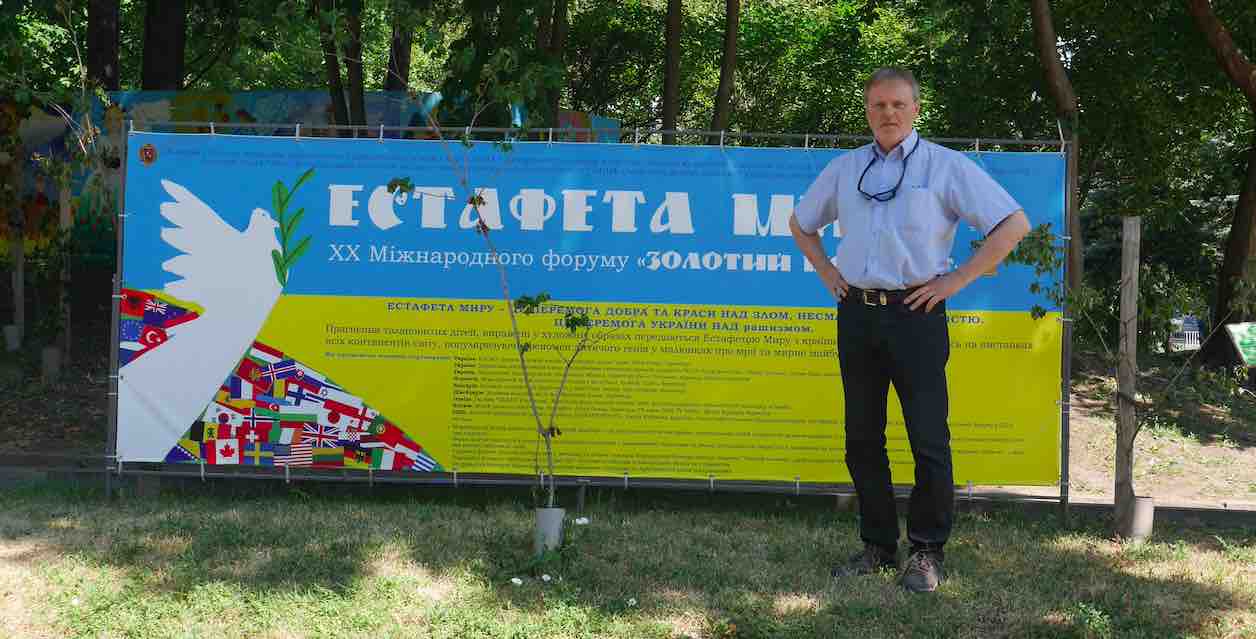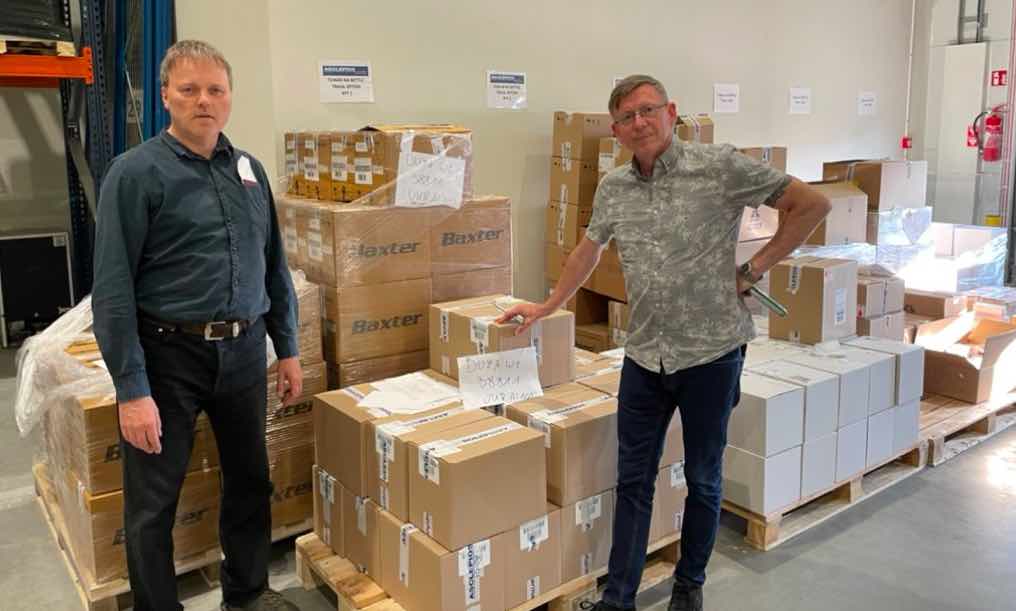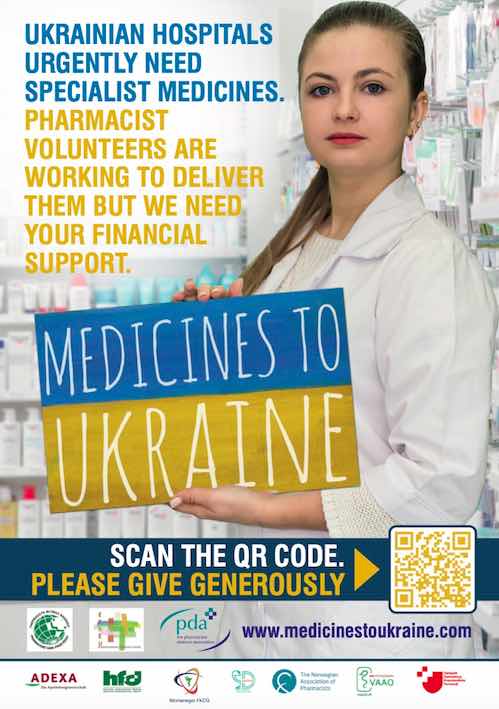Interview: Supplying medicines to Ukraine
In Profession
Follow this topic
Bookmark
Record learning outcomes
By Rob Darracott
Supplying urgently needed medicines into Ukraine is a marathon, not a sprint, even if the war were to be over by September, says PDA chairman Mark Koziol.
Recently back from the country, where he saw the supply chain established by the Medicines to Ukraine campaign deliver its first consignment, he says it's vital to understand what medicines are needed, rather than make assumptions on what might be useful.
Medicines to Ukraine is a centralised campaign organised by EPhEU, the European Association of Employed community Pharmacists in Europe, to respond to calls from Ukrainian hospitals for specialist help, working with Pharmacists without Borders and charity partners.
Donations to the campaign from pharmacists and members of the public in a growing number of European countries are used to purchase and deliver the medicines Ukrainian clinicians say they need. Pharmacist expertise around medicines is central to the effort.
The big lesson from his trip, Mr Koziol says, is that authorities and agencies need to work together to create secure mechanisms to ensure that medicines (and other items) reach Ukrainian hospitals and other health facilities. And that pharmacists have skills that are vital to ensuring the medicines secured through the programme and suitable for use when they get to Ukraine.
He says that what he has learned first-hand by accompanying EPhEU’s the first £200,000 worth of medicines across the border, is that sending goods, including medicines, on spec does not work, and that people who want to help, or donate, should think very carefully about how they do it.
“We want to draw attention to what’s happening and ask people to help, and yes, we want them to subscribe to our scheme – why wouldn’t we?” he says.
“But that’s because the Ukrainians told us the alternative doesn’t work. People are dropping in medicines that subsequently can’t be used – this is not just a problem for Ukraine, it happens in crisis zones around the world.”
The answer, he says, is a structured, organised scheme. "Why should this be any different to what we do in the UK - in hospital pharmacy, community pharmacy is all about supplying medicines distributing medicines to the public in a safe and efficacious manner. What we introduced was that safety, that transparency, that efficacious side to the programme.”
In his role as EPhEU general secretary, Mr Koziol was given the task of working out what the organisation could do following a request from pharmacists in Ukraine. “Very soon after the crisis started in Ukraine, our members in Ukraine gave us a very vivid story of how the hospitals were being destroyed, how the medicines infrastructure was being uprooted. Could we do anything to help?”
Research revealed that what was going on to get supplies into the country was far from ideal. “Deliveries for hospitals left in car parks under tarpaulins because they couldn't accept it into the hospital. No quality chain; couldn't demonstrate FMD principles had been adhered to, they couldn't guarantee the temperature of anything that had been transferred. No paperwork to show where it had come from. The hospitals couldn't use it.
“Government officials in Poland are telling me that it’s not the two and three quarter million Ukrainian refugees that are the epidemic; it’s the cardboard boxes that have appeared from every single part of the world, in vans, in lorries, in car boots. They're all piled up on the border, in car parks, in warehouses, in ditches. In some cases, they've lost all hope of ever opening them.
“We had to come up with an alternative for medicines. The charity organisations were saying they had always struggled with medicines; there was a real need to be filled with expertise and a system.”
The result was a Medicines to Ukraine campaign, promoted through a poster suitable for display in pharmacy windows anywhere in the world, telling a simple story – please don’t send boxes. Click this QR code to send us money. And we will organise a central scheme to fulfil orders for what Ukrainian hospitals say they need.
The banner at the roadside (top) is a plea for peace for the children of Ukraine. Pictured above, part of the first Medicines for Ukraine consignment being prepared prior to the journey into Ukraine. Mark Koziol is pictured with humanitarian specialist advisor Jon Barden
EPhEU member trade unions across Europe signed up charity partners to receive donations on behalf of the programme and started distributing the posters – they were sent out last week with the PDA’s Insight magazine in the UK.
Logistics expertise was provided by the union treasurer in Poland, who had 25 years’ experience in wholesaling; the PDA’s legal team in the UK were key to the developments of the memoranda of understanding signed by the various parties across the continent that underpin the programme, while its IT department ensured the whole campaign could be run digitally. The PDA even has a Ukrainian refugee working on the scheme.
Centralising the collection of cash donations enables EPhEU to place a substantial orders with wholesalers in countries bordering Ukraine, who are working on reduced margins. The first order – for just over half of the first £350,000 raised so far – was delivered in the last week of June and turned an idea into reality.
Pharmacy expertise is a vital component of the scheme, Mr Koziol says. “It gives us the opportunity to show what pharmacists can do. I’ll give you an example: when the Ukrainians place an order, it has to be understood and processed properly.
"Pharmacists – they happen to be in Poland – convert that order into the dosages, the strengths etc that can be ordered from warehouses across the continent, in a way a charity or DHL couldn't do.”
Back home, the PDA has already taken the scheme into the Sennedd in Wales and intends visiting Westminster as well as Scotland and Northern Ireland to talk to politicians about what it is doing and as an example of pharmacists making something happen. “If we're really going to make a scale difference, we are going to have to rely on the public for contributions, on charity organisations for contributions and, ultimately, on government and government departments for contributions,” Mr Koziol says.
As well as getting pharmacy into the mindset of politicians, he says he hopes to convince the authorities that 'pull schemes', which put Ukrainian clinicians in the driving seat in terms of what is sourced for delivery are a considerable improvement on the existing 'push schemes', which can result, Mr Koziol says, in hospital corridors full of boxes of equipment and medicines they don’t need and can’t use.
More in Mark's story
How you can help
“Put the posters up (UK version below). We're positioning pharmacy as a solution to the problem. Go on the website and find out what the scheme is about. Enthusiastic members of the public will want to know more. Encourage people to help.
“Don't send medicines. Don't do it, because it largely ends up being wasted.
“Use the opportunity to talk to patients about medicines. That's what we do as pharmacists, whether we're supplying medicines locally, or to the other side of Ukraine. Let's show people what being a pharmacist is all about."



